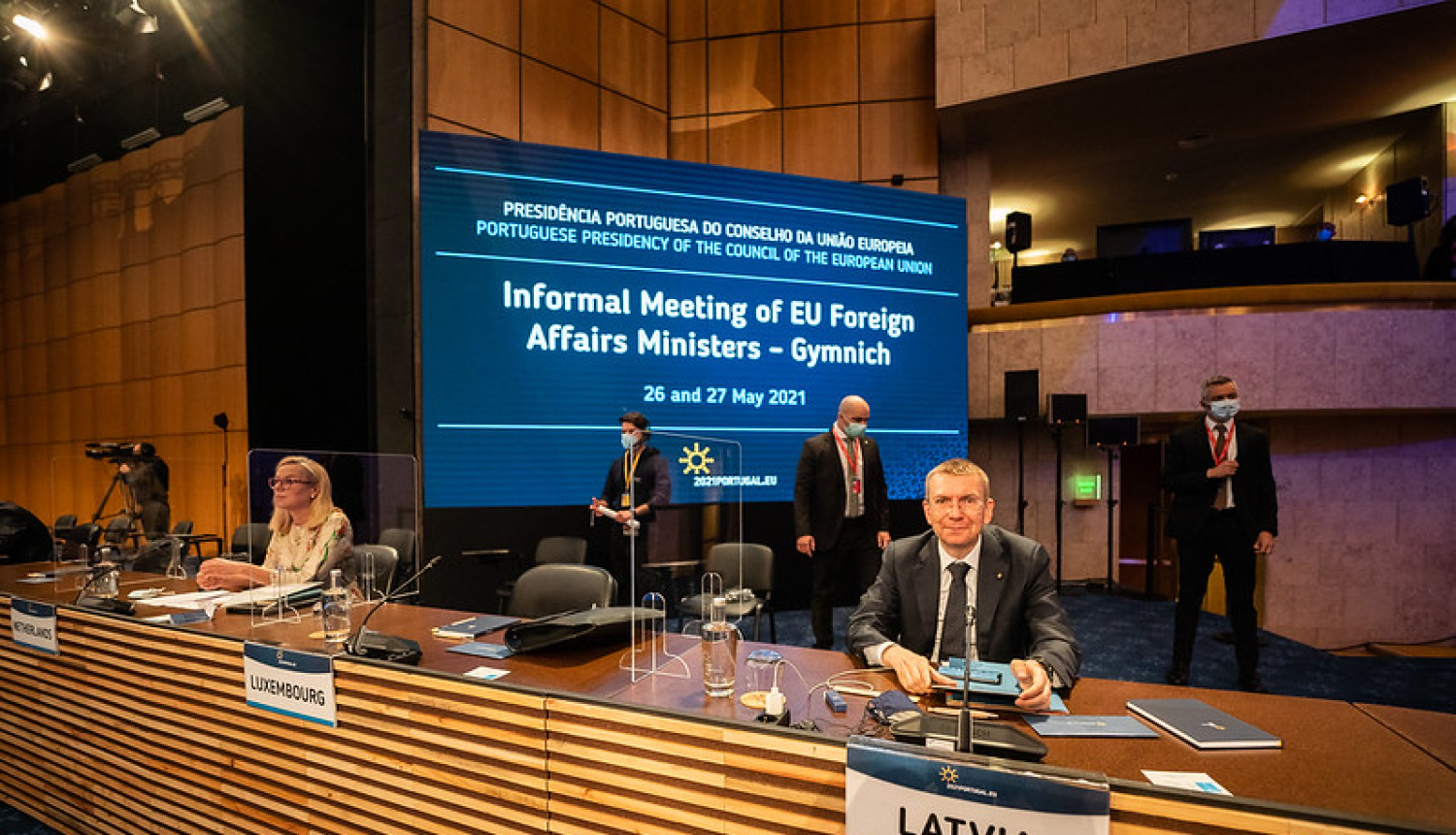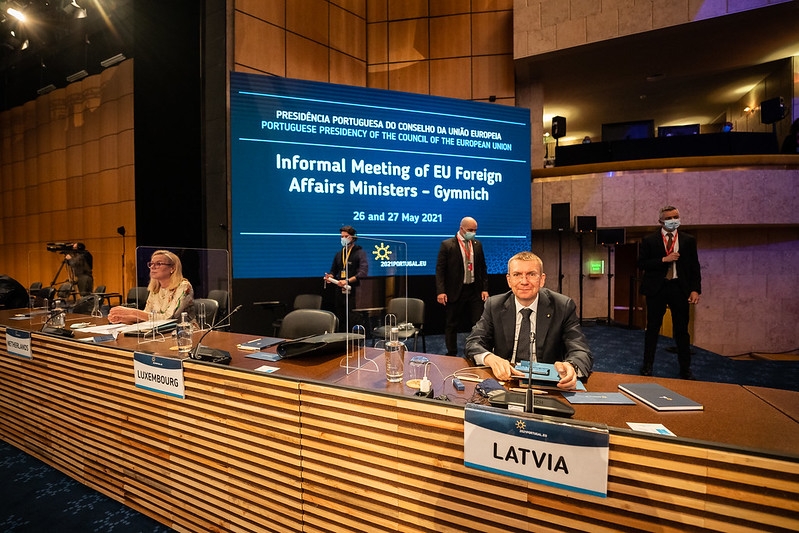On 26 and 27 May 2021, the Latvian Minister of Foreign Affairs, Edgars Rinkēvičs, took part in the informal meeting of the European Union’s Foreign Affairs Ministers – Gymnich – in Lisbon, Portugal. The main items on the agenda were EU-Africa relations, the unresolved conflicts in the Eastern Neighbourhood and the EU’s strategic perspective on the Indo-Pacific region.
EU ministers also met with the Jordanian Minister for Foreign Affairs, Ayman Al Safadi, for a discussion on developments in the Middle East and North Africa.
The EU is interested in assisting its partners in Africa with the implementation of essential reforms aimed at sustainable security, stability and inclusive development. A major role is played by the EU’s strategic communication in promotion of democracy, the rule of law and respect for human rights. Edgars Rinkēvičs noted that the activities of other players in the region should be taken into account, including Russia and China. In order to foster relationship between the EU and Africa, it is in the EU’s interests to enhance its visibility in the African continent, by improving communication and stimulating economic growth, including through engagement of women and children.
In an exchange of views on frozen conflicts in the Eastern Neighbourhood, the ministers recognised that the EU’s unwavering support is important for sovereignty and territorial integrity of the Eastern Partnership countries. Minister Rinkēvičs underlined that the EU must speak with one voice. Russia is involved in each one of the unresolved conflicts in the Eastern Neighbourhood – in the east of Ukraine, Transnistria, Nagorno-Karabakh, as well as in Abkhazia and South Ossetia. The EU must be more actively involved in resolving those conflicts in close cooperation with transatlantic partners in the international formats such as the UN and OSCE, which facilitate the prevention and peaceful resolution of conflicts.
In the Indo-Pacific, Latvia supports the EU’s efforts to pursue a uniform foreign policy in this region, highlighting the principles of a rules-based international order and multilateralism. Given the diversity of the region’s countries and the challenges they are facing, the ministers underlined that the EU should reinforce its cooperation with like-minded partners, who advocate climate issues, democracy, human rights and the resolution of regional conflicts.
The informal meeting referred to as ‘Gymnich’ is a regular gathering of the EU foreign affairs ministers that is organised every six months by the country holding the Presidency of the Council of the EU. These meetings are marked by an informal atmosphere in which ministers speak candidly on various topics of EU foreign and security policy.





